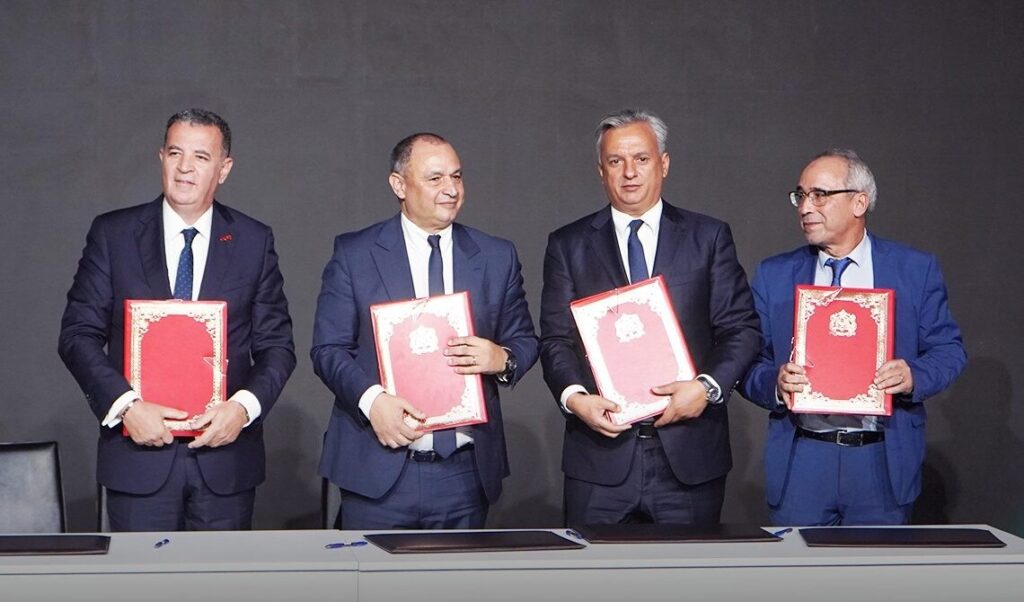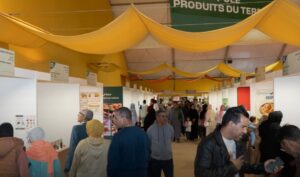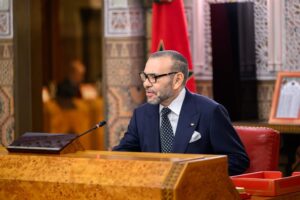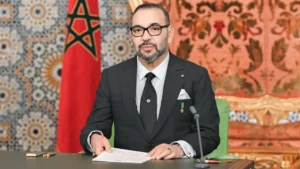Morocco Launches Third National Industry Day to Boost Economic Sovereignty and Industrial Growth

Rabat, The Gulf Observer: The Ministry of Industry and Trade, in collaboration with the General Confederation of Moroccan Enterprises (CGEM), inaugurated the third edition of the National Industry Day (JNI) on Tuesday at the Sofitel Jardin des Roses in Rabat.
Running through Wednesday, this year’s event is held under the theme “Made in Morocco: A Mark of Quality, Competitiveness, and a Lever for Integrated Territorial Development.” It brings together senior government officials, business leaders, innovators, and regional representatives to showcase Morocco’s industrial capabilities and reaffirm its commitment to economic sovereignty, job creation, and sustainable development.
‘Industry Is at the Core of the Employment Battle’
Opening the two-day event, Prime Minister Aziz Akhannouch underscored the government’s determination to make industry a central pillar of Morocco’s economic strategy.
“Today, we place our bet on the industrial sector so that it becomes the core of the employment battle,” Akhannouch stated.
He highlighted that industrial employment nearly doubled over the past decade, reaching 985,000 jobs in 2024. Over the past year alone, the sector created 46,000 new jobs, compared to 7,000 the previous year.
Industrial growth, he added, reached 3.8% in 2023 and is projected to hit 4.8% by the end of 2024. Exports from the industrial sector have surged 64% since 2019, climbing from MAD 243 billion to over MAD 398 billion. Manufactured goods now account for 87% of Morocco’s total exports, led by automotive and aeronautical components.
“Morocco is now the leading producer of passenger cars in Africa and the top exporter of combustion-engine vehicles to the European Union,” Akhannouch affirmed.
According to the World Intellectual Property Organization’s 2025 Innovation Index, Morocco now ranks 12th globally for medium- and high-tech industrial production.
Reforms, Investment Incentives, and Green Transition
The Prime Minister outlined a series of reforms aimed at enhancing Morocco’s industrial competitiveness and investment appeal. These include an updated Investment Charter, improvements to public procurement processes, and tax simplification measures.
“We’ve injected liquidity directly into the productive fabric, reimbursed over 30 billion dirhams in VAT over the past two years, and stabilized electricity prices for industrial firms,” Akhannouch said, noting that the government absorbed 41 billion dirhams in energy costs between 2022 and 2024 to support industry.
He also announced a green-energy initiative that will supply more than 5 gigawatts of clean power to the industrial sector by 2030.
“Under His Majesty’s leadership, we are building a clean-energy value chain—from raw materials to battery assembly—anchored in the ‘Morocco Offer’ for green hydrogen,” he emphasized.
This initiative aims to position Morocco as a leader in sustainable production and leverage energy transition as a competitive advantage for exports.
Five Strategic Industrial Agreements Signed
As part of the opening ceremony, five major agreements were signed to reinforce Morocco’s industrial base and promote innovation:
- “Made in Morocco” Label: Establishes a national certification system for product origin and quality, uniting public and private stakeholders to promote Moroccan-made goods. “This label is more than a stamp; it’s a statement of trust, quality, and Moroccan pride,” said Minister of Industry and Trade Ryad Mezzour.
- Tatwir-R&D and Innovation Program Extension (2026–2028): Renewed with a budget of MAD 900 million, this program now includes creative technology sectors such as gaming startups alongside industrial firms.
- Machinery Tooling & Automation (MTA) Cluster: A five-year agreement supported by the Fonds d’Appui aux Clusters to strengthen Morocco’s local machinery and tooling industries.
- Local Pharmaceutical Inputs Initiative: Designed to reduce dependence on imports and strengthen national health supply chains by producing pharmaceutical ingredients domestically.
- Rail Industry Testing Platform: A new technical center established by the Ministry of Industry, ONCF, Cluster MTI, and CERIMME to enhance railway safety, innovation, and production standards.
These agreements reflect Morocco’s comprehensive vision to expand and modernize its industrial ecosystem, promote innovation, and advance toward a greener, more competitive economy.


